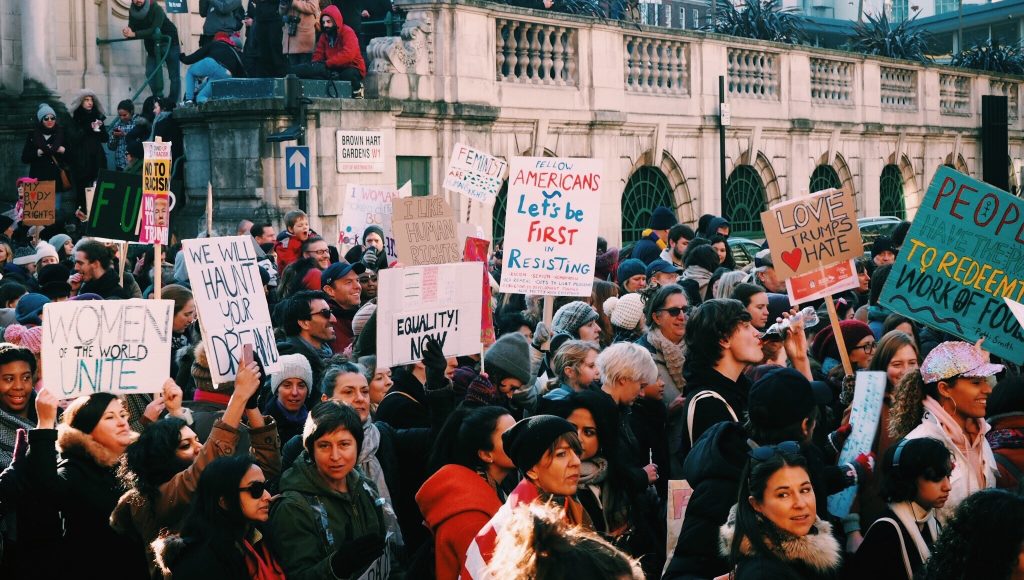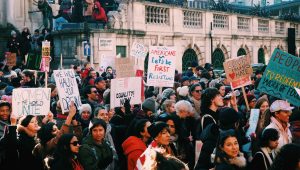
Isabel Swanson on why political activism of any scale, can make a difference.
Since January, millions of people have taken part in protests centred around the new US presid ent, a man who has come to represent a dangerous threat to human rights, equality and social justice, not just in his own country but across the world.
ent, a man who has come to represent a dangerous threat to human rights, equality and social justice, not just in his own country but across the world.
As I was standing in the crowd of thousands awaiting the start of the Women’s March, I felt an immense feeling of unity, which I am sure was shared by everyone there. People of all genders, races, ages, sexual identities and backgrounds were marching together as advocators for change; passionate and determined to make their voices heard. But the positivity experienced, both at the demonstration itself and online, was infiltrated by comments such as ‘it won’t change anything’, ‘it’s pointless’ or ‘it’s too late’.
To some, protests and marches are nothing more than a group of attention-seeking people with vague and conflicting motives standing in the street complaining. Holding a hand-painted sign for a couple of hours does not qualify as sustained political action; while the moment may highlight discontent, as the crowds disband, the movement fades and its target has no obligation to comply with their wishes. This was seen in the 2003 protest against the invasion of Iraq which, despite attracting around 3 million in London alone, did little to change the government’s mind.
But history has shown us that marching makes a difference. The introduction of the Equal Pay Act in 1970, the American Civil Rights Movement and the 2011 overthrow of Hosni Mubarak’s dictatorship in Egypt, for example, were all based upon the impact of protests; its participants did not sit around and hope for change but inspired it themselves. The Women’s March now over, its organisers are continuing their fight through their ‘10 Actions for the First 100 Days’ campaign, proving that their voices are not fading just yet.
Despite it all, Theresa May still flew to Washington D. C. and talked about retaining the UK’s ‘special relationship’ with the US. A march won’t change anything overnight. But they encourage people to exercise their democratic rights, to connect and animate others and remind the government that they’re there and they are watching, as has been demonstrated on our very own campus.
